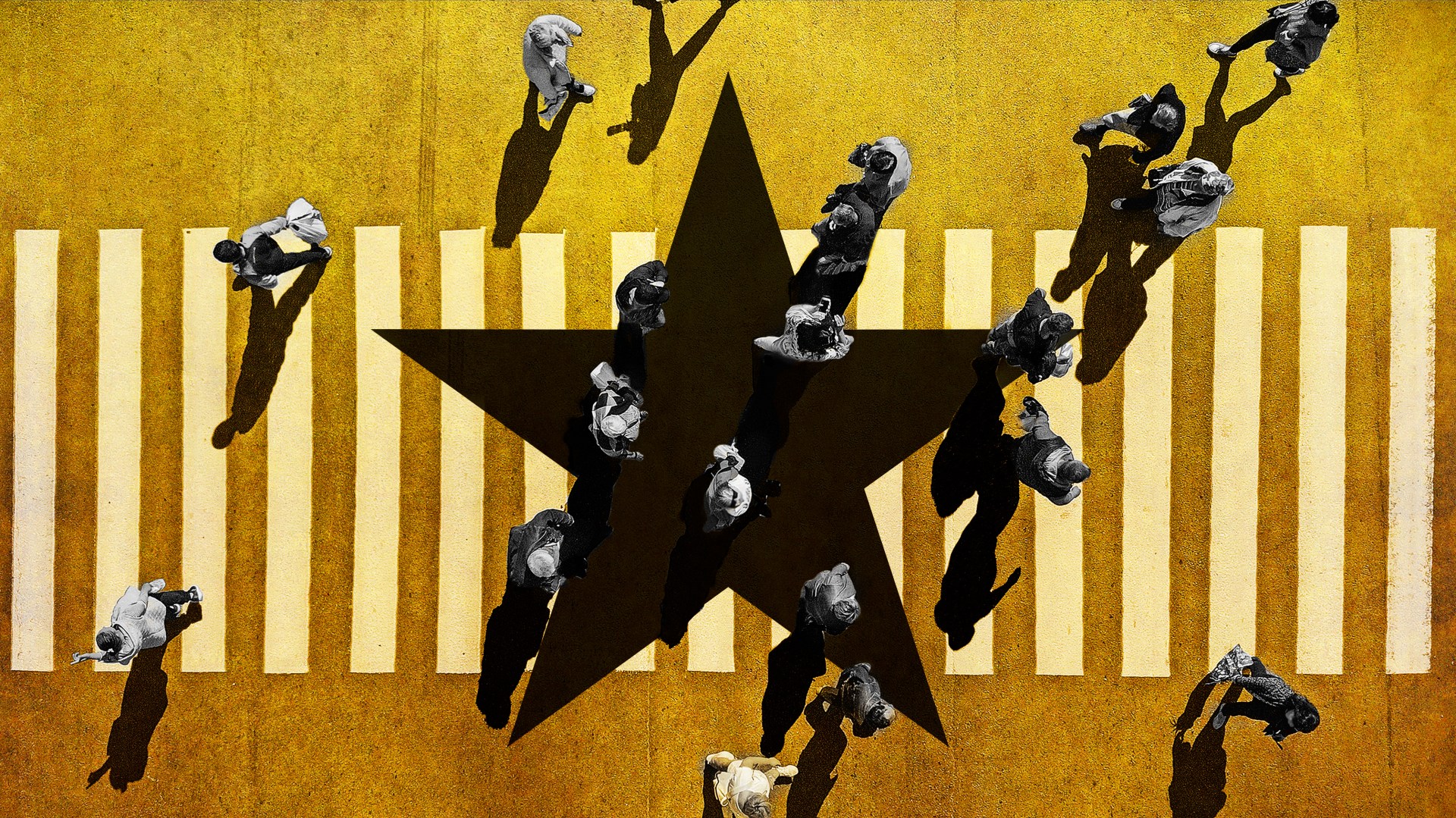Some stories serve as parables of the period they are written in. Romeo and Juliet and Hamlet depict the religious tensions of Reformation England without ever mentioning the words Protestant or Catholic. Frankenstein reflects anxieties about early industrialization: Will our scientific power turn around and destroy us? The Lord of the Rings evokes World War II and the fight against fascism. Great stories can encapsulate historical moments, and indeed entire civilizations.
If I had to choose a parable for the post-Christian West, it would be Lin-Manuel Miranda’s Hamilton. Even if you haven’t seen it, you know the story: An impoverished immigrant arrives in a new land with nothing but his wits, joins the revolution, writes his way to recognition, fights his way to victory, designs the nation’s financial system, founds a newspaper and a political party, antagonizes nearly everybody, cheats on his wife, loses his son, decides an election, gets shot and killed by the vice president, and ends up on the ten dollar bill.
But Hamilton is about more than one bright, scrappy immigrant fighting his way to the top. The show features multiple clashes between old and new worlds, in which young, brash, loquacious energy collides with stuffy, patrician traditionalism. At the personal level, Hamilton takes on Aaron Burr and Thomas Jefferson. At the national level, New York City and its banks struggle for supremacy against Virginia and its plantations. At the international level, America goes to war with Britain.
In each case, the new kid on the block is derided as big-mouthed, garishly dressed, and obsessed with money. Yet the new kid wins anyway, confirming that the future belongs to Hamilton, New York City, and America, not the slave-owning South or the crown-wearing buffoons across the Atlantic.
In that sense, Hamilton is the story of the modern West. Industrial economies displace agrarian ones. Polyglot democracies win out against patrician monarchies. Creative geniuses with quick wits and a commitment to follow their heart wherever it leads transform the culture. Economic value is determined by the banks in the cities, not the crops in the countryside. Traditional values, for good or ill, are upended by the sweeping power of the market and the social changes it ushers in.
Or consider Hamilton’s treatment of Christianity. For much of the show, faith plays a minimal role, despite its importance to much of the plot and many of the characters. Christian themes and biblical allusions do appear: providence and prayer, homilies and hymns, the sinners and the saints.
But you would never know how large a role Christianity played in the American Revolution or the battles over slavery, or that Eliza Hamilton was a devout Christian, or that Thomas Jefferson was decidedly not.
Then suddenly, when Hamilton’s son dies in a duel, it all comes pouring out. “It’s Quiet Uptown” is the musical’s most moving song, bringing the emotional catharsis we need after watching a teenage boy bleed out in front of his parents. We witness Hamilton’s spiritual renewal. He takes the children to church on Sunday, making the sign of the cross as he enters. He begins to pray. We hear about the grace that is too powerful to name. And then we see Eliza forgive him, not just for his infidelity but for failing to stop his son from getting himself killed.
It might as well be a parable of post-Christendom. Religion is firmly in the background while we are winning wars and making money, and even while we are making shady deals and having affairs. Although Christianity still shapes our history, ethics, architecture, and psychology, we rarely think about it when times are good.
But when things fall apart—when we lose our children or our partners, when we face death ourselves, when we have done something unimaginable and need forgiveness and grace—we know where to find help. We may head to church for the first time in years. We might start praying or reading the Scriptures. Spirituality returns.
Every generation has its parables, and Hamilton is one of ours. If we have ears to hear, there is plenty to learn from it. People may not feel they need the church like they used to, for all kinds of cultural and economic reasons. But they will always need grace.
Andrew Wilson is teaching pastor at King’s Church London and the author of God of All Things. Follow him on Twitter @AJWTheology.













